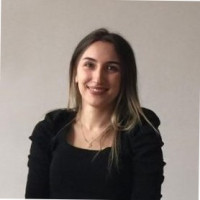Journal Boards
Editor in Chief
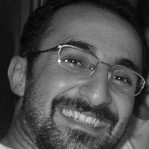
 Türkiye
Türkiye
Editorial Assistants
 Türkiye
Web
Türkiye
Web
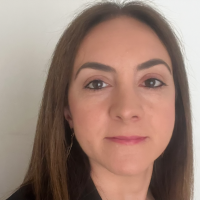
Editorial Board
https://orcid.org/0000-0002-7714-3363
Associated Professor in the Urban Design and Regional Planning Unit at the University of Alicante. Each research covers different topics including landscape planning for territorial and urban space analysis. Her main research field is landscapes of the Spanish Mediterranean Arc. She has also participated in several research projects related to the use of location-based social network data for evaluating city planning in collaboration with the MappingAME Research Laboratory of the University of Alicante.
Her research activity is developed through two lines of research that have as a common framework for the landscape and its perception, both at the territorial and urban scale, supported by 6 I+D+i competitive projects -1 as IP and the rest as a member of the research team-: (L1) the urban-territorial landscape and its perception: spatial organization, urban regeneration and the transformation of the collective image. This L1 is related to 3 research projects: a) Progr.PropioUA, IP researcher GRE21-06A "[GreenWedgeConnectivity] Peri-urban transects: Valorization of green infrastructure as an ecosystem service" (2022-2024); b) PID2020-116893RB-100 "[PER-START]Peri-Urban strategic areas in transformation" (2021-2024) national competitive project team member; c) project GRE05-09 "Urbanism in the coastal strip of the province of Alicante: analysis and diagnosis", of Prog. (L2) subject: "Landscape, perception, and monitoring of urban dynamics through data from social networks or application of technology". Linked to 4 research projects: 1-GV-(2017-2019) AICO/2017/018 "The cities of the Valencian Community through geolocated data"; 2-Progr.PropioUA(2019-2021) "GRE18-19- LIVELYCITY- Interdisciplinary methodologies for the study of the city from geolocated social networks"; 3- Progr.PropioUA(2016-2018) "GRE15-14- MAPPINGAME- Representation and interpretation of urban dynamics through geolocalized data from social networks and web services"; 4)Prog.PropioUA- IP "GRE21-06A [GreenWedgeConnectivity] (2022-2024). The
scientific production developed is supported by papers published in WOS - SCOPUS -AVERY journals and book chapters in SPI editorials.
These works contribute to the advancement of knowledge and innovation through the design and testing of methodologies that provide an effective tool for application to urban planning. This facilitates the analysis of urban clusters of tourist activity, green infrastructure, or coastal spaces at a fine granularity scale of detail. Furthermore, the relevance of the research is reflected in its contribution to SDG 11. The selected papers demonstrate the dynamics of different urban and periurban scales, based on actual user activity, preferences, and geo-referenced digital traces. This makes it possible to conduct an opportunity analysis for urban planning that complements other traditional tools.
In the transfer, technological development, and innovation activities, there has been collaboration with public or private entities in agreements or contracts. Among these, some are of particular significance in the improvement of urban and peri-urban environments of tourist interest.
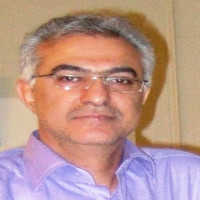
 Iran
Web
Iran
Web
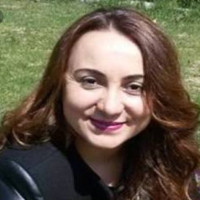
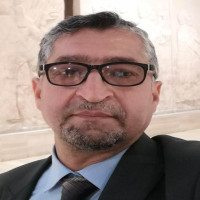
Dr. Ahmed Yousif Alomary was born in Mosul, Iraq, in 1964. He earned his B.Sc. degree in Architectural Engineering from the University of Mosul in 1987, followed by an M.Sc. degree in Architectural Engineering in 1992, and a Ph.D. in 2008 from the Department of Architectural Engineering at the University of Technology in Baghdad, Iraq.
He served as a Lecturer in the Department of Architectural Engineering at the University of Mosul from 1992, advancing to the position of Assistant Professor in 2014. Additionally, he held the role of Head of the Department of Architectural Engineering at the University of Mosul from 2017 to 2022.
Dr. Alomary also contributed as a member of the technical committee for the rebuilding of Al-Hadba Minaret at Al-Nuri Mosque under the auspices of UNESCO.
His research interests include Landscape Design, Cultural Landscape, and Sustainable Design. He has participated in the following conferences:
ECLAS, European Council of Landscape Architecture Schools, Istanbul, Turkey
ECLAS, European Council of Landscape Architecture Schools, Genoa – Landscape and Ruins, Italy
LE:NOTRE Landscape Forum, Antalya, Turkey
LE:NOTRE / Mundus Meeting, Versailles, France
The Second Scientific Engineering Conference, Mosul University
Digital Landscape Architecture (DLA) Conference, Dessau and Bernburg, Germany
First International Conference on the Development of Architecture, University of Sulaimani
Revive the Spirit of Mosul: International Conference for the Rehabilitation of the City of Mosul, UNESCO, Paris
The International Historian Association for Culture, Erbil
Scientific Conference of Culture and Archaeology Organization, Baghdad
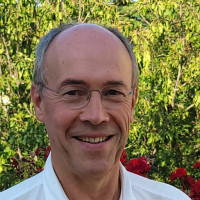
Jeroen de Vries (1953) is a landscape architect and landscape ecologist who focuses on strategies and innovative action for the sustainable development of landscape. In projects acting as the driving force: structuring, organising discussion, guiding decision making, supporting his colleagues, and editing and implementing the outcomes. Graduated as a landscape architect of Wageningen University with a specialisation in landscape design and landscape ecology. Until the summer of 2024 he was a partner of an consultancy office on public spaces (DG Groep, Woerden).
Currently he is Director Researcher of the LE:NOTRE Institute. He is an independent landscape architecture researcher. He contributed as a landscape ecologist to a variety of projects, such as the Masterplan for Rijnenburg (Utrecht, NL) and the design and planting plan of the Eindhoven High Tech Campus, the design of ecological zones in the city of the Hague for the Erasmuszone and Stadhoudersplantsoen, and assessment of flora and fauna for new development plans. From 2005 till 2008 he conducted research on Design for Biodiversity at Van Hall Larenstein and gave lectures on this topic at the Academy of Rotterdam and Ankara University. In 2019 he lectured on the implementation of Green Infrastructure for the National Romanian Landscape Architecture Association in Bucharest. He initiated and coordinated the Erasmus+ project on AESOP4Food for sustainable food planning, giving lectures on food system analysis for which he elaborated the building blocks of an Agroecological Urbanism, for instance by writing a report on a new model for Agriparks.
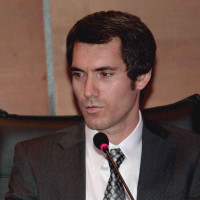
Language Editors
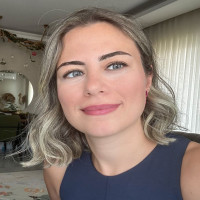

 Türkiye
Türkiye
Layout Edtors
